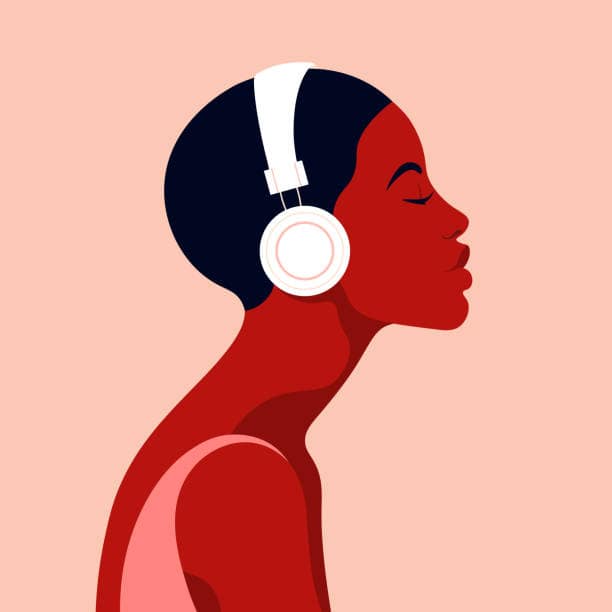If you’ve ever wanted to write your own songs and perform them in front of an audience, you’ve probably pondered how to become a singer.
Some people believe unless you’re born with it unless you can not develop it. After all, singing is one of the most in-demand musical abilities.
Is it, however, truly difficult to learn to sing? Obviously not.
Practice and perseverance can improve singing, like any other musical ability. In reality, every good vocalist will tell you that perfecting their own abilities takes a significant amount of time and work.
But where should you begin, and what is worth your time? What can you anticipate if you decide to take the plunge?
In this article, I’ll walk you through the six steps to becoming a singer.
1. Change your mindset
Let’s start by dispelling the most common misconception about singing: you don’t have to be a natural talent to compose music as a singer.
Modern songs place a strong emphasis on the vocalist as the central protagonist of the music they make.
However, practically every song you hear is the result of cooperation between hundreds of skilled people working on various areas of production.
The performer obviously contributed their ability to the mix, but the final polished sound is the result of a lot of labor behind the scenes.
Once you understand this viewpoint, you’ll feel less self-conscious about not sounding fantastic straight immediately.
The reality is that everyone has the ability to sing, and there is no such thing as a terrible voice.
2. Learn how to practice
You’ll need to put in the effort to practice singing musically and build your tone.
Almost everyone occasionally sings in the shower or hums under their breath. However, this is not the same as regular vocal exercises aimed at honing your fundamental skills.
There are hundreds of internet tutorials for vocal warm-ups, singing exercises, and basic approaches. It may appear overwhelming, but all you actually need to get started is to master a few simple methods.
Look for a credible site that offers straightforward, beginner-level information, but don’t be too concerned about finding the proper one. Your improvement will be determined by consistent practice rather than by specific strategies.
When seen in this light, practicing singing is no different than playing any other instrument. Find a regimen that works for you and stick to it—that is the only way to improve!
3. Train your ear

The girl listens to music on headphones. Music therapy. Profile of a young African woman. Musician avatar side view. Vector flat illustration
When it comes to singing, making sound with your voice is only half the struggle.
The remainder comes down to understanding the principles of music and developing a talent known as ear training.
It’s a musical practice that enables you to discern intervals, place them in context in the material you’re singing, and hear them in your head before singing.
Your greatest hope for always singing on key and striking the appropriate notes is to have a good ear.
Ear training and music theory work hand in hand, and if you study music in a traditional environment, you’d typically learn both at the same time.
Fundamentals like as major and minor scales, chords, progressions, and rhythms should be on your to-do list to get started.
But don’t be intimidated by music theory; most of what you’ll learn will sound familiar if you detect it in music you already know and enjoy.
You may put theory into practice by training your ear at the same time. Recognizing intervals, singing them in various keys, and structuring them into chords will help you consistently hit your notes.
Fortunately, there are some excellent apps available to assist you in honing your hearing. Here’s a rundown of our top picks.
4. Build your confidence

You can gain confidence by learning songs and singing with other musicians once you’ve mastered the fundamentals.
Singing in a band or ensemble differs from solo singing, but it is a necessary ability.
Interacting with other musicians will help you figure out where you are and what you need to work on.
Being a musician is also one of the most enjoyable and fulfilling aspects of the job.
If you’re not ready to collaborate with others in person, you may always do so online.
Producers, for example, frequently collaborate with singers to develop hooks and toplines for their beats and tracks.
5. Find your unique style
Finding your own distinctive style as a singer and creator is the most critical step.
Finding your own distinctive style as a singer and creator is the most critical step.
Every voice has its own strengths, so figuring out which genres, moods, and styles yours performs best in is crucial.
You may have to accept that some vocal styles are above your basic sound’s capabilities, but that’s fine. You’ll find a method that suits you if you concentrate on being creative and musical.
Here are some pointers on how to figure out what you sing best:
Find your range
Bass, tenor, alto, and soprano are the most common roles in a vocal ensemble. They correlate to various vocal types, which are distinguished by the range of notes they sing.
Identifying your voice type might help you sing in more comfortable keys and write better parts.
Here’s a step-by-step approach to determining your voice type and how it might help you grow as a singer.
Try different genres
Diverse genres approach voice style in very different ways.
You can discover that your voice is better suited to a specific genre, ranging from whisper delicate to all-out shouts.
As you develop your personal style, don’t be afraid to experiment with new ways.
Experiment with vocal effects
Vocal effects are used to enhance the singer’s voice in many of today’s various vocal styles.
Some of the most common ones, such as Auto-Tune and lo-fi effects, are probably familiar to you.
However, there are a plethora of fascinating audio effects available to help you create a unique vocal sound.
For a glance at the possibilities, check out our guides to vocal processing, transient effects, pitch correction, and more.
6. Use tools to help you
You’ll need to learn some fundamental music producing methods in order to employ those great effects.
Although it may appear intimidating, any music producer nowadays should be familiar with the fundamentals of utilizing a DAW.
Even if you never intend to mix or master music, digital tools have a lot to offer in terms of creativity.
When it comes to singing, vocal recording is a separate skill that you must learn.
When it comes to singing, vocal recording is a separate skill that you must be learn. It’s strange to hear your own voice recorded if you’ve never done it before.
In addition, vocal tracking magnifies every flaw in your performance. After all, you’re singing into a highly sensitive microphone at close range in a vocal booth by yourself!
It’s a part of becoming a good singer to get used to it. However, recording oneself with a DAW will assist you in crafting pieces and identifying areas where you may improve.
This is crucial knowledge for any aspiring vocalist.
Start singing now

Singing may appear to be a rare ability reserved for a select few.
However, if you delve a little deeper, you’ll discover that this has never been the case.
There are plenty of brilliant singers that fly under the spotlight and write remarkable songs for every dazzling pop star.
Whatever style you choose, it’s worthwhile to take the beginning steps toward a career as a singer.

